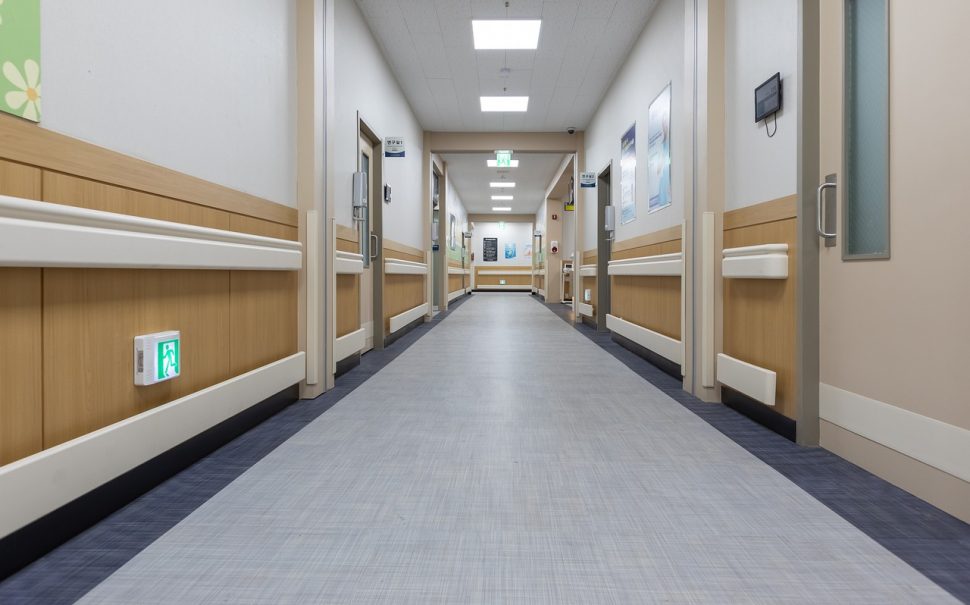Young people who have stoma surgery in England are increasingly finding support online as patients being offered personalised care remains below 10%.
Just 7% of patients with Inflammatory Bowel Disease (IBD) in the UK claim to have been offered care plans adapted to their personal needs, according to IBD UK.
One form of treatment for IBD is the formation of a stoma, where part of the bowel is removed and an opening is made in the abdomen – around 190,000 people live with one in the UK.
While in-person support groups hosted by charities are available across Greater Manchester, the number of young people attending is declining and their mental health needs are increasingly being met in online communities rather than through direct NHS support or referrals.
Megan Priest underwent stoma surgery when she was 19 at the Salford Royal Hospital and believes mental health support for young people isn’t taken seriously enough.
She is now an experience volunteer for Crohn’s and Colitis UK, a charity which supports and campaigns for people with IBD.
She said: “The first person I met in hospital was in their early 60s, so somebody that was 50 years older than me, which doesn’t really help on the mindset side of things.
“I think more support needs to be given to younger people, especially on how they look.
“The only real place I found I could access any kind of support was on Facebook.
“At the moment after surgery, it’s a bit like passing your driving test and then being handed the keys to a car right? ‘Go drive it on your own’
“You’re like, oh, wait, hang on can someone sit in the passenger seat with me whilst they get used to it?
“And you don’t necessarily get that support.”
Before the Covid-19 pandemic, Megan used a drop-in clinic at her local hospital like a lot of similar services across the UK at the time.
She added: “Post-pandemic, I think a lot of hospitals now, due to funding, you need to call up and make an appointment to see them, so it takes away a little bit of flexibility.”

Patients may require a stoma for a number of reasons including complications from Endometriosis, abdominal injuries, cancers as well as the main causes of IBD which are Ulcerative Colitis and Crohn’s Disease.
But as with many areas of the NHS, personalised aftercare and mental health support are under-prioritised due to staffing pressures, in particular, the number of specialist stoma nurses.
IBD UK, a partnership of 16 organisations to improve care and treatment for people with IBD, has called for integrated mental health support to be implemented throughout diagnosis and treatment and for the personalised care plan to be a nationally endorsed service.
But for stoma patients, this care would be the responsibility of their specialist stoma care nurse and in Greater Manchester reported figures show the proportion of stoma nurses to patients differs massively depending on what hospital you use.
Marlene Evans runs support groups and counselling for people living with an ileostomy (a type of stoma) or internal pouch in Greater Manchester.
She said: “I would say there is a lot of support in Greater Manchester if people want it.
“I work a lot with Salford Royal Hospital patients and I’ve never had someone come to me who had an issue there but I couldn’t confirm if that is the case for other areas and some of that is because there has been a reduction in the number of stoma nurses in some areas.”
The last count in 2023 showed Stepping Hill Hospital in Stockport, covering a population of 480,000 people, had three stoma nurses while Manchester Royal Infirmary and Trafford Hospitals, covering a population of 750,000 people, had just one stoma nurse.
Marlene added: “What we are finding is that there is a lack of membership which is an issue across the entire country and it is because young people generally don’t join groups.
“It is not a thing young people do, they get their information, understandably, from the internet.
“But I think it is really important to be talking with people whether that be on the phone, in person or in the hospital.
“But a lot of young people get their information on their phone which I think is very impersonal.
“And in a way, it can be harder for young people, I was in my late fifties when I had my ileostomy and I can understand that it can be a lot more traumatic for young people as they have their whole life ahead of them.”
But the online world of ‘ostomates’ are changing perceptions and connecting young people around the country in the same situation as them.
Meg said: “It’s amazing to see how many people, not only do they have a stoma, but they’re also posting publicly online about living with one.
“I think if I’d seen that when I was in my teens, that would have really helped me kind of feel like I wasn’t alone.
“In regards to what stoma nurses give and what the hospitals give, from friends who recently had the surgeries done in the last year or two, I wouldn’t say that’s massively changed.
“But in regards to kind of online social media presence, it’s astronomically different.”
NHS England has been approached for comment.
If you need help, support or worried about symptoms you can visit the Crohn’s and Colitis UK website or call their helpline on 0300 222 5700.




